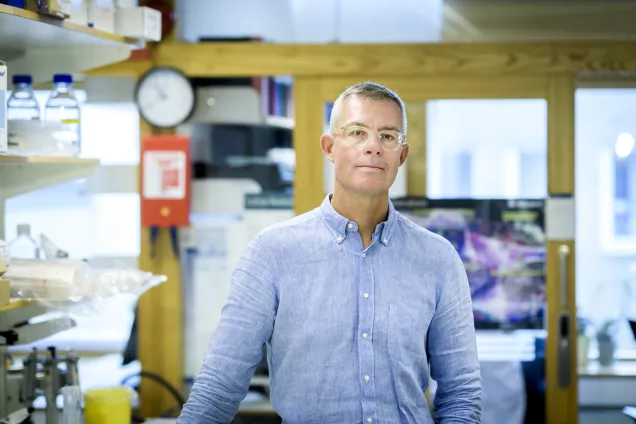Diabetes – Molecular Metabolism
Hindrik Mulder’s group
Our research
We strive to understand why insulin-secreting beta cells fail to release sufficient amounts of insulin in type 2 diabetes.
Pancreatic beta cells release the hormone insulin when blood glucose increases after a meal. Insulin lowers blood glucose levels and allows it to be taken up by tissues and stored as energy. This can then be used by the body between meals and during fasting. In type 2 diabetes, insulin release fails and blood glucose levels become elevated. This is harmful to the body short and long term. Beta cells fail both due to genetic and environmental factors.
We use stem cells from type 2 diabetes patients, who carry risk genes for the disease. The risk genes can be corrected by genome editing techniques. “Cured” cells are then developed into beta cells – comparing “risk cells” with ”cured cells” allows us to resolve beta cell failure and identify new ways to treat type 2 diabetes.
Aims
- We aim to generate insulin-producing beta cells from stem cells derived from patients with type 2 diabetes.
- We aim to use patient-derived insulin-producing cells to resolve how beta cell failure occurs in patients at risk of type 2 diabetes.
Impact
A better understanding of disease processes, both genetic and environmental, that lead to type 2 diabetes allows identification of novel therapeutic targets to treat the disease.
Insulin-producing cells developed from patient-derived stem cells may be used as replacement therapy in the future.
Research output
Link to a list of research output by the group in Lund University’s research portal
Team members
Link to a list of team members in Lund University’s research portal

Contact
Hindrik Mulder
Principal Investigator
Professor of metabolism
+46 702 92 69 28
+46 40 39 10 23
hindrik [dot] mulder [at] med [dot] lu [dot] se
Hindrik Mulder’s profile in Lund University’s research portal
Affiliations
EXODIAB: Excellence of diabetes research in Sweden